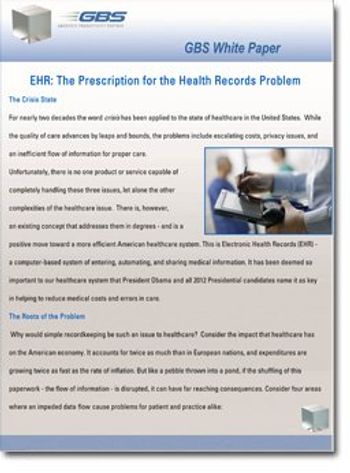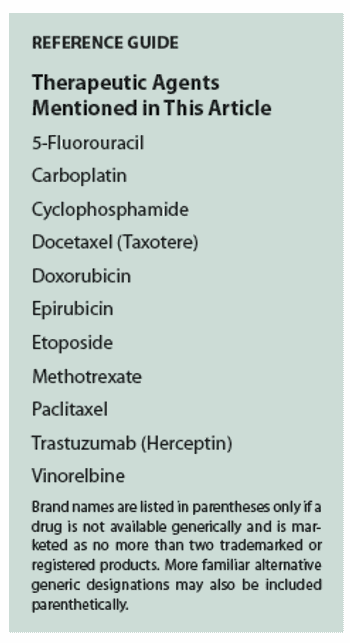
Involving your support staff is essential to achieving meaningful use of a certified EHR. Do you have a plan?

Involving your support staff is essential to achieving meaningful use of a certified EHR. Do you have a plan?

Anyone who thinks that physicians' slow adoption of EHRs makes them modern-day Luddites hasn't seen a doc with an iPad. Tablet computing does seem uniquely suited to healthcare, and physicians are warming quickly to the intuitive gizmos. But will tablets revolutionize medical practice - and yours?

Here's some simple guidance on how to comply with the Stage One initiatives of CMS' meaningful use initiatives and achieve meaningful use of your EHR.

After months of preparation, family physician Douglas Foreman was one of thousands of physicians to go online today and make his case to CMS that he was in fact achieving "meaningful use" of his EHR.

The Affordable Care Act, signed into law in 2010, is the roadmap for healthcare reform for the next decade. The legislation includes several initiatives that will impact the way physicians operate and change their everyday business practices. Here is a year-by-year outline of the biggest benchmarks that will affect physician practices.

You've probably heard of state and regional Health Information Exchanges, but what the heck are they, exactly, and can they be of any use to your practice?

Are you ready to make social media platforms part of your practice? Make sure you put reasonable constraints in place.

Posting a general disclaimer on your practice's social media platforms protects both you and your patients.

Healthcare IT is in a state of flux and change, with constant improvement and upgrades. With established companies rolling out new versions of their systems, alongside new entrants who are bringing new systems to market, the features and horsepower of HIT systems has never been greater.

Medical associations representing practices and other healthcare providers teamed up to ask CMS for more specificity and clarity when it comes to Stages 2 and 3 meaningful use measures.

Many physicians believe that they open themselves up to potential liability risks by engaging in social media. In practice, it is always prudent to be concerned with malpractice risk. That said, the key to effectively utilizing social media is twofold.

Looking for the best defense against possible litigation? According to plaintiffs' attorneys, good communication and proper documentation are your best weapons when legal action threatens. Here's the inside scoop on how to protect yourself against lawsuits, straight from the people who make a living filing them.

If making patients happier and physicians’ lives easier isn’t enough reason to pique your interest in patient Web portals and PHRs, consider the fact that using both can help providers achieve meaningful use on several Stage One measures.

HHS officials Sebelius and Blumenthal praise CMS’ meaningful use initiative, calling on providers to embrace federal health programs.

Getting patients on board with keeping their own patient health records is an easy way for physicians to improve care. Here's how to do it.

To cash in on federal incentives, you need the right equipment and a good understanding of what it means for your EHR to be certified. Here's your primer.

In the era of EHRs and meaningful use, physicians’ practices have a growing number of IT needs. We caught up with IT consultant Marion Jenkins at HIMSS 2011 in Orlando to learn more about the challenges practices face, as well as some of the key IT trends on the horizon.

Wondering about the process for demonstrating meaningful use? The rules have been final for months but this week the government unveiled its process for following them.

Kids downloading apps to their smartphones in 2011 will grow up to expect to have access to online prescription refills, mobile Web portals, and health-monitoring applications. What does that mean for your practice? Get used to serving tomorrow’s patients today by getting cozy with mobile technology.

Are health IT vendors ready to supply the marketplace with products enabled to meet the government's requirements for meaningful use of EHRs?

Defensive medicine is one of the single-biggest drivers of healthcare costs, yet the so-called reformers simply ignore this fact. What can you do as a physician?

When it comes to implementing EHR systems, a growing number of practices are opting for Web-based EHR solutions over traditional software-based programs.

Medical practices have been slow to embrace the "customer comes first" mentality that defines corporate America - an operational oversight they can no longer ignore.

Navigating the world of health IT can be confusing, to say the least. Just keeping up with all the acronyms is tough enough, much less the exploding offerings of tech products to aid you, your staff, and your patients. Sometimes you need a little help on where to start.

If you are looking for new and emerging health IT solutions for your practice, HIMSS11 is a great place to start and Physicians Practice is providing comprehensive coverage of the event.